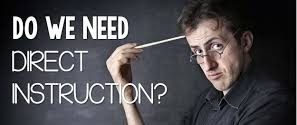Math? Yes, You Can! Fostering a Growth Mindset
- Brandis Jones

- Mar 7, 2018
- 4 min read
“Why is it that as a society we’re willing to freely admit that we’re not competent mathematicians but would disguise any struggle we had with being literate? What if we decided that numeracy and literacy are both languages we should be fluent it?” Leslie Minton, What If Your ABCs Were Your 123s?
How society views math ability
At many of my workshops, I tell a version of a scenario Leslie Minton outlines in the first chapter of her book What if Your ABCs Were Your 123s? It goes something like this: Suppose you are standing around talking with a group of folks at a cocktail party. Someone laments about the difficulty they have planning and executing their household budget. They comment that they’re “just not good at math.” Everyone in the group laughs appreciatively, and soon people are sharing their own “I’m not good at math” stories. It’s as if “I can top that one!” is a badge of honor. Contrast that with a similar scenario: Someone in the circle asks if anybody read a recent article in the Wall Street Journal about the upcoming election. Someone laughs and chimes in, “No, newspapers aren’t really useful to me. I’ve just never been any good at reading.” Imagine the reaction. I’m thinking of a shocked silence, followed by murmured comments as the group awkwardly disbands and drifts away.
The idea that it’s okay to be bad at math is NOT okay. So how do we turn this ship around? Enter growth mindset.
Carol Dweck introduced us to “fixed” and “growth” mindset in her 2006 book, Mindset: The New Psychology of Success. If you would like a quick introduction to her research and findings, take 10 minutes to watch this TED Talk in which she explains the power of Not Yet. She concludes her talk with a powerful call to action: “Let’s not waste any more lives, because once we know that abilities are capable of such growth, it becomes a basic human right for children, all children, to live in places that create that growth, to live in places filled with yet.”
There is no such thing as a “math brain”
Fast-forward ten years and growth mindset is a hot topic in math education circles. Last week I attended CAMT (Conference for the Advancement of Mathematics Teaching) and Jo Boaler, a mathematics educator out of Stanford University and co-founder of youcubed.org, gave a keynote address. She spoke about the importance of our words and messages, the brain research supporting the value of a growth mindset, and ways to “open up” math for all learners. Her book, Mathematical Mindsets, is a best-selling handbook for teachers and parents who are looking for practical ways to improve math instruction and boost achievement. If you are not familiar with Jo’s work, I highly recommend that you view her TED Talk and then visit youcubed.org for a wealth of free resources, including brain research, posters, lessons, and so much more. She also conducts online courses for both teachers and students titled How To Learn Math. The student course is free, while there is a charge for the teacher course.
Charting a course for change
I am big believer in having a focus for personal professional development, and for the upcoming school year, my personal PD focus area is growth mindset. I dabbled in it a little last year, but this year I’m all in. I work exclusively with struggling students, and who better to benefit from understanding how struggle and failure can actually change the brain? Here’s my plan:
This summer, I’m reading and studying Mindsets in the Classroom, by Mary Cay Ricci, and Jo Boaler’s Mathematical Mindsets. These books will be resources I use throughout the year. By the end of the school year they’d better be dog-eared and worn!
I’m keeping a mindset journal with ideas that I want to implement with my students.
Any professional development I participate in throughout the year will be viewed through the lens of growth mindset. For example, if I attend a session on mathematical discourse, I will look for ways to connect that learning to my work with growth mindset.
Because it’s important to teach my students the brain research behind the mindset theory, I’m gathering resources to help with that (see the links to some videos below). I’ll be mining Twitter and Pinterest for ideas.
My first week’s lesson plans will be focused on growth mindset and what math learning should look like in the Math Lab. The week will culminate with my students taking the withmathican pledge, which we will post in the Math Lab and refer to often.
Finally, if you are going to create a culture of growth mindset (or anything else, for that matter), it has to be visible on a daily basis. This can’t be something I talk about the first week and then never mention again. I will use my mindset journal to document the ways my students and I have grown in our understanding of growth mindset and the results of our new learning.
I’m excited about this journey! Any expertise or resources you can share would be greatly appreciated. Please comment!
Videos:
Growth Mindset Video (2:31, simplified explanation of brain research) Growth Mindset Animation (3:50, uses the context of the Tortoise and the Hare) You Can Learn Anything (1:30, Khan Academy video) How the Brain Learns (3:37, includes emotional and physical factors as well) Your Brain is Plastic (4:06, suited for older students)










Comments